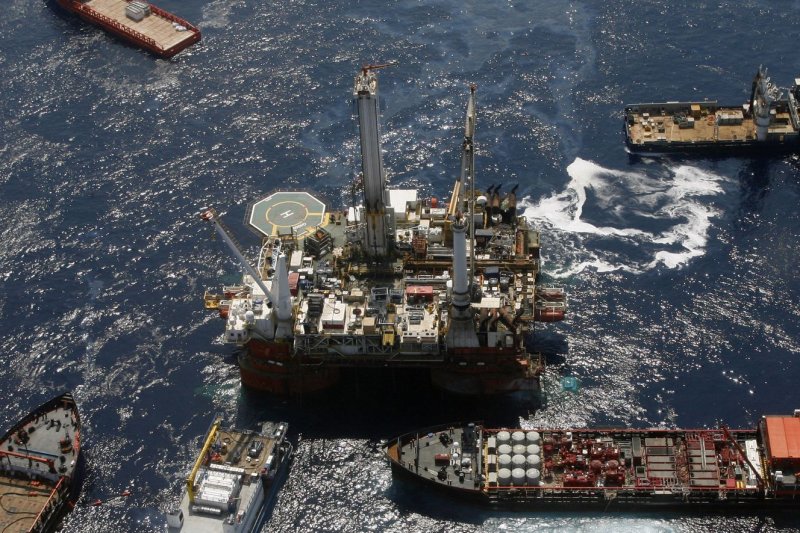British energy company steps away from legacy assets in the North Sea, giving a once-minor player a chance at success. File photo by A.J. Sisco/UPI |
License Photo
Nov. 21 (UPI) -- The sale of gas fields in the British North Sea could be a sign that bigger companies are losing interest in an area with a bit of a future, analysis finds.
Serica Energy said Tuesday it was taking on the role of operator at the Bruce, Keith and Rhum fields in the North Sea in a deal with British supermajor BP that could have an initial value of as much as $17 million. Serica gets about 110 staff from BP in a deal that leaves the British supermajor with the costs associated with any decommissioning. Serica, meanwhile, didn't have to raise any additional equity to finance the deal.
The deal for the North Sea means Serica's production grows from a first-half 2017 average of around 2,000 barrels of oil equivalent per day to 28,000 barrels of oil equivalent per day, most of which exists as natural gas.
"This transaction will establish Serica as a leading British independent oil and gas company with the scale, balance sheet and operating capability to prosper in the North Sea's rapidly changing upstream oil and gas industry," Executive Chairman Tony Craven Walker said in a statement. "It will diversify Serica from being a single asset to a multi-asset production company."
The Bruce field was discovered more than 40 years ago, but only came onstream in the early 1990s. Some of the other assets in question were tied into the broader infrastructure in the early 2000s. With staged payments over the next four years, BP said it expects to receive around $400 million from the deal.
Bernard Looney, the chief exploration and production director at BP, said the company remains committed to the North Sea, with output doubling by 2020 from newer projects like Clair Ridge and Quad 204.
"This [sale] is an example of BP's upstream strategy in action -- refreshing our portfolio and focusing our activity on assets which will add most value over the long-term," he said in a statement.
Working under the Quad 204 regional redevelopment effort, the company started oil production from the Schiehallion area west of the Shetland area of the North Sea midway through the second quarter. BP has produced nearly 400 million barrels of oil from Schiehallion since production started in the late 1990s and the company said redevelopment could yield another 450 million barrels and extend the field's life into the 2030s.
Fiona Legate, a regional analyst for consultant group Wood Mackenzie, said the sale is a big deal for a smaller exploration and production company like Serica, which only has to cover a small fraction of the final costs upfront.
The deal, she said, is one of the biggest of its kind for BP in five years.
"[It] fits with our belief that the major will look to sell all bar its core West of Shetland fields, which still have materiality and longevity," she said in an emailed statement. "It's yet another creative deal in the UK, in a year filled with large companies selling down."















